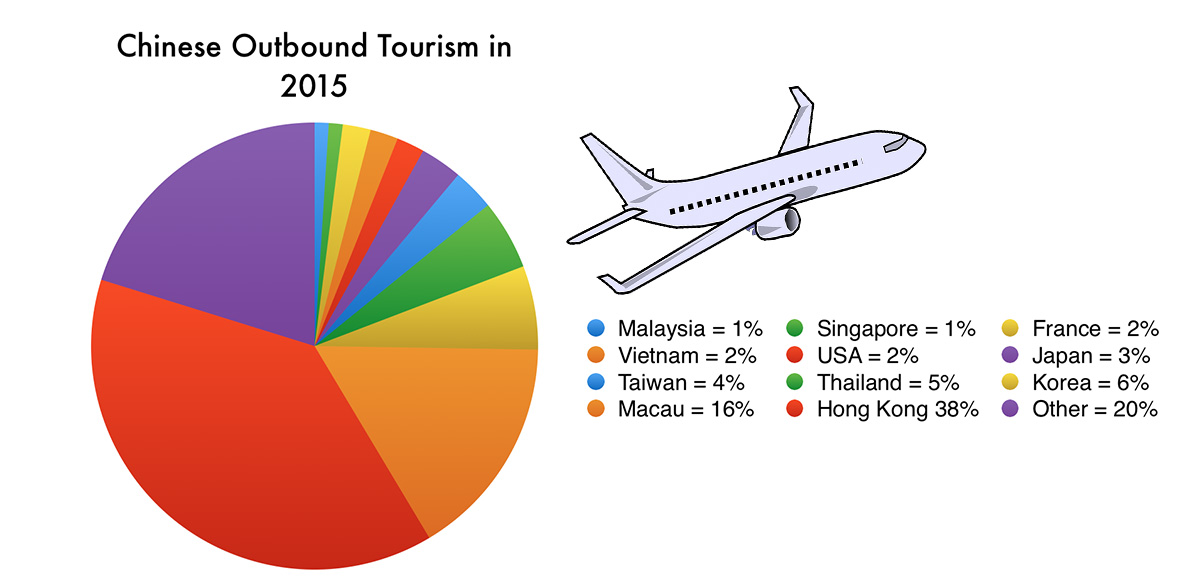This huge growth will provide incredible opportunities for everyone in Thailand as restaurants, shops, hotels and businesses will see an influx of new customers. Smart business owners are catering to this market by offering services and information in Mandarin as well as other dialects.
The huge growth of tourists from China expected over the next five years is a direct result of China’s growing economy and the increasing discretionary income of Chinese citizens. Additionally, other reasons for bump in Chinese travelers is the lifting of travel restrictions and the fact that Asia is the preferred first choice in travel for those in mainland China.
Brokerage House CLSA says Thailand is expected to see 16% compound annual growth per year over the next five years.

According to CLSA, 36% of all arrivals in Thailand came from China in 2015. In surveying these guests, Chinese tourists are different than any other nationality in that shopping is not an activity the Chinese list as an interest while visiting Thailand. Another research group out of Germany, GfK discovered some other interesting findings regarding Chinese tourists; half of China’s outbound travelers are millennials while 37 per cent of travelers range in age from 30-44 and 10 per cent are 45-59.
Among a number of exciting developments is the express railway between China and Thailand that is currently under construction. The price for traveling by rail is expected to be a third of what it costs to travel by plane and the expected completion date is 2020. All of Thailand will benefit from this new railway as it will pass through over 10 provinces in Thailand, exposing Chinese tourists to areas they may not have considered traveling to previously. According to officials for the railway, Thailand is expected to see over two million Chinese visitors per year via the train.
One travel agency in China reports that the influx of Chinese to Thailand is partly attributed to better travel values in Thailand than are available in China. This coupled with the short travel times is driving demand for not Thailand, but other Southeastern countries.
The increase in tourists to Thailand means more and more jobs. According to Thai Hotel Association president Surapong Techaruvichit, job openings in hotels increased by 17 to 18 per cent last year. In comparison to other jobs in the Thai labor market, entry hospitality jobs are an excellent option as they often pay 15 to 20 percent higher wages than the minimum wage, plus they provide extension training and a wide array of career options as there are countless directions a polished hospitality professional can take once they get training and some experience under their belt. Furthermore, the hospitality industry offers the greatest chance for advancement to senior management for those lacking a specialized degree such as accounting, nursing, engineering, etc.
In speaking to many Thai professionals within the hospitality industry, they often cite the opportunity to travel as a key motivator in pursuing a career in hospitality. Another common benefit to working in the industry is that no two days are the same as hotels and resorts are constantly welcoming new guests everyday. This provides those in hospitality industry an opportunity to learn more about the world around them and to make friends with people they may not have ever had the chance to meet otherwise. So as the industry grows, so does all the exciting career options for Thai professionals.


